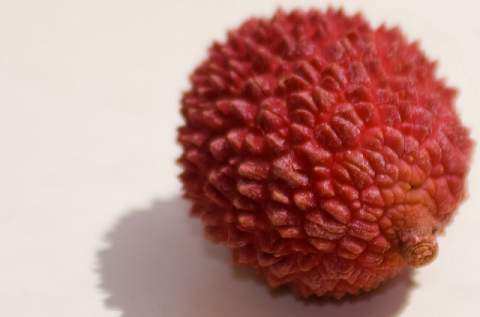
Chinese consider oval shaped lychees to be the symbol of love and romance. Packed with vitamins, minerals and fiber, this fruit is delicious and has abundant benefits for your health.
Unfortunately, sensitive people may experience lychee allergy symptoms. This tropical fruit is mostly found in the months of May and June in China and Southern Asia.
Its alluring sweet taste made it to add into many western dishes. Surrounded by rough skin, lychee can be consumed in various forms. However, you consume it; if you’re allergic to its proteins then probably you’ll experience the reaction.
Allergy can be observed in the oral cavity after few minutes of eating the fruit. Allergic reaction triggers with conflicting reaction between immune system and proteins in the fruit.
Your immune system treats these nutritional proteins as inimical item and produces antibodies to determine the same. In response, it releases histamines to thwart the foreign substances from the body.
Lychee Allergy Symptoms
Signs of lychee allergy can be mild like sneezing, itching and cough. If you don’t pay attention, then it may lead to severe conditions like asthma, sudden drop in blood pressure and unconsciousness.
You must consult the allergist if you experience mild or severe reaction. Only after conducting specified tests, medication will be give according to the allergen.
Common symptoms of lychee allergy are:
- Runny nose, sneezing, nasal congestion
- Watery, itchy and sore eyes
- Coughing and wheezing
- Swelling of lips, face, tongue and throat
- Itching and skin rashes
- Sinus and headache
- Tingling sensation in mouth and throat
- Eczema
- Nausea
- Breathing problem and asthma
- Low blood pressure and lightheadedness
Reports say that a girl who ate raw lychee fruit experienced allergy symptoms after 30 minutes. Another case state that a girl confirmed of having lychee allergy after eating cake with lychee ingredients.
Cross-Sensitivity
Lychee belongs to identical botanical order as cashew nut, so if a person is allergic to specified ingredients can be sensitive to lychee fruit.
If you experience asthma and conjunctivitis signs when exposed to pollen, then experts say that probably you’ll be allergic to lychee. Profilin is the source of allergen, which is found in most plants.
Prevention and Diagnosis
Let me confess that you can’t treat lychee allergy sitting at home. You must reach doctor for diagnosis. He will conduct skin prick test and other related test to confirm lychee IgE antibodies.
Based on that, medicines will be prescribed. Corticosteroids and anti-histamines are known to relieve from mild allergic symptoms.
To restrain this allergy you’re advised to avoid lychee in any form, either raw or dried. Foods items and daily used products which use lychee fruit has ingredient must be kept away.
In rare cases, allergy will trigger when the patient comes in contact with the allergen or even if he/she inhale the smell. Check if you’re allergic just by touching the fruit or its ingredients.
People working in nail salons complain about skin allergy due to repeated exposure to chemical ingredients. So you must check twice before handling the allergens.
Consult the doctor as soon as you see any of the lychee allergy symptoms.

